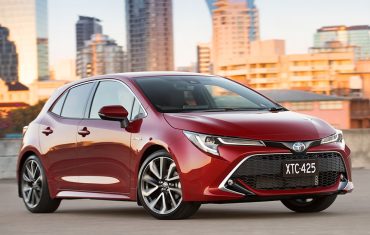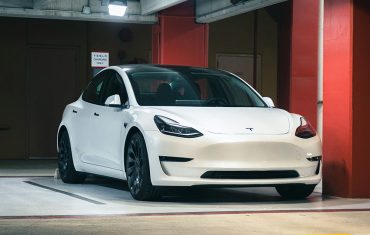
A sharper sustainability focus for fleets in 2023
For your businessThe election of the Albanese Government in May 2022 has seen a shift in public policy at Federal level towards sustainability and emissions reduction. These policy changes may see a sharper focus on sustainability milestones for business fleets in 2023 – the most notable being the introduction of the EV discount bill that passed Senate on November 28.
The Government had already passed some landmark pieces of legislation that will reduce Australia’s greenhouse gas emissions: The Climate Change Act 2022 and the Climate Change (Consequential Amendments) Act 2022. After securing the support of crossbench senators in late November 2022, the Government will legislate changes to Australia’s Fringe Benefits Tax laws that slashes the cost of some new EVs for business and fleet buyers, and in the process, help reduce CO2 emissions.
The Climate Change Act
With the passing of the Climate Change Act and the Climate Change (Consequential Amendments) Act into law, Australia now has legislated emissions reduction targets, including a 43 per cent emissions reduction by 2030 and net zero by 2050.
Under the conditions of the Acts, the emissions reduction target automatically increases every five years to stay in line with Article 2 of the Paris Agreement. The independent Climate Change Authority is now tasked with monitoring Australia’s progress, and the law stipulates that the minister for climate change has to provide annual reports to the parliament on Australia’s progress towards these targets.
“The passage of the climate change legislation sends a message to the world that Australia is serious about driving down emissions, and serious about reaping the economic opportunities from affordable renewable energy,” said the Federal Minister for Climate Change and Energy Chris Bowen at the time of the legislation being passed by parliament in September.
“This Act is important because it demonstrates that the majority of our Parliamentarians understand that climate action is a shared and urgent responsibility,” said Climate Council CEO Amanda McKenzie after the passing of the legislation. “For the first time ever Australia has clear, minimum climate targets enshrined in law. This will help encourage the massive private investment we need to transform our economy to net zero.”
The Treasury Laws Amendment (Electric Car Discount) Bill
With cars and heavy vehicles among the main sources of greenhouse gas emissions, a major plank of the Federal Government’s plan to achieve its sustainability targets is to make EVs a more viable option for buyers. To do this, the Government has introduced the Treasury Laws Amendment (Electric Car Discount) Bill 2022, which will drastically cut the price of a new EV for fleet and business buyers.
As the Electric Vehicle Council’s CEO Beyhad Jafari told Driving Insights in 2022: “It’s definitely a very positive sign that the Electric Car Discount bill was one of the first bills that this government introduced in Parliament. And being one of the first big announcements that they’ve made is reflective of a government that’s taking this issue very seriously and sees [EVs] as a massive opportunity for Australia.”
“They’re in government for at least the next three to four years, and they’re doing it all in the first half of the first year,” he continued, “so that shows how seriously the government recognises the important role electric vehicles will play in meeting its emissions reduction target.”
The bill will exempt electric vehicles that fall below the Luxury Car Tax threshold of $84,916 from having to pay Fringe Benefits Tax (FBT). Treasury modelling shows that the cost of purchasing a battery electric, hydrogen fuel cell or plug-in hybrid vehicle could drop by as much as $9,000 for employers and vehicle fleet managers under the changes to FBT laws.
The Electric Vehicle Council of Australia welcomed the announcement of the intended passage of the law through parliament, particularly through the lens of the long-term effects on local car markets.
“This incentive supports the rapid uptake of EVs, particularly in company fleets which are often sold after 3-4 years,” they announced in a social media response. “This will significantly increase the number of second-hand EVs, available to all Australians, at prices much cheaper than new EVs.”
The changes to FBT laws also have the potential to deliver hefty savings for employers and employees who choose to lease EVs. While noting that individuals should always seek independent advice about their particular tax situation, Jacob Greber in the Australian Financial Review, reports that the changes proposed under the bill had the potential to save EV buyers approximately $30,000.
“The FBT exemption would mean a customer with a gross income of $95,000 using a 36-month novated lease through their employer to purchase a 2022 Tesla model Y would see their take-home pay reduced by $1364 a month, compared to $1863 under the current rules,” he noted.
“Over the course of the lease, the total saving to the buyer would be $29,451 compared to a standard car loan.”

So, what does this mean for fleet managers?
With the Federal Government taking tangible steps to force emissions reductions on to all of our agendas, those responsible for business fleets must have a sharper focus on sustainability measures as we move into 2023.
The government’s FBT changes will drastically reduce the prices of new battery electric, hydrogen fuel cell or plug-in hybrid vehicles, allowing employers to provide EVs to employees at a much cheaper cost.
With ongoing supply issues resulting in frequent wait times of 6-12 months and longer for ne cars, ordering your EVs as soon as possible is crucial.
Fleet managers have a unique opportunity to promote the take-up of electric vehicles while significantly reducing their fleet running costs; they also have an opportunity to play a major role in helping their organisations achieve sustainability targets and bring Australia one step closer to a greener, more sustainable transport future.
SG Fleet is committed to helping Australian business to transition to an electric mobility future.
Talk to us today to get your low-emission transport future in place.
 Driving Insights
Driving Insights



